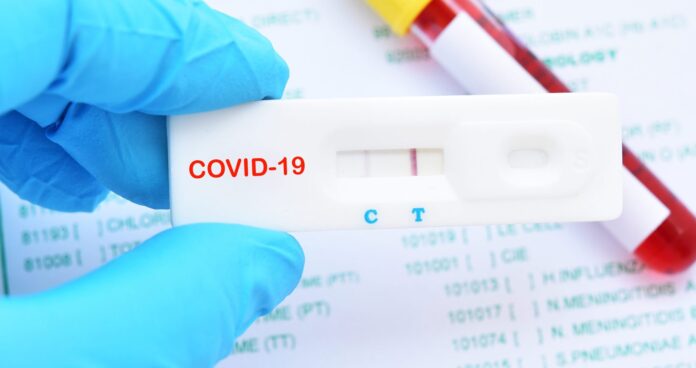COVID-19 testing have plunged worldwide, making it harder for scientists to track the pandemic properly. Therefore, they cannot spot new, worrisome viral mutants as they pop up and spread. Experts claim testing dropped by 70 to 90% this year. This is the opposite of what should be happening since the new omicron variants are on the rise in the U.S. and South Africa.
“We’re not testing anywhere near where we might need to,” said Dr. Krishna Udayakumar, the Duke Global Health Innovation Center director. “We need the ability to ramp up testing as we’re seeing the emergence of new waves or surges to track what’s happening” and respond.
COVID-19 Testing Downturn
According to Johns Hopkins University, daily cases average 73633, up more than 40% over the last two weeks. However, it is considered a significant undercount because of the testing downturn. Plus, COVID-19 tests are being taken at home, and the results are not being reported to the health department. In addition, home tests results are invisible to tracking systems. The University of Washington’s modeling group estimates that only 13% of cases are reported to the health authorities. The overall rates are inaccurate in the developing world. The number of tests per 1000 people in high-income countries is 96 times higher than in low-income countries.
Experts worry that the world is becoming “blind” to what is happening with the virus. Testing helps lead to the discovery of new variants. For instance, the New York state health officials found the BA.2.12.1 variant after investigating an incline in case rates. Scientists won’t see new variants emerge the way they have previously. Testing will only increase as infections rise and people develop symptoms.
Potential Tracking Methods
Mara Aspinall, managing director of an Arizona-based consulting company that tracks COVID-19 testing trends, said there’s at least four times more home testing than PCR testing, and “we are getting essentially zero data from the testing that’s happening at home.” Unfortunately, some people aren’t sure how to report their results; who does the information go to? Aspinall suggested scanning technology as a possible solution, like a QR code.
Georges Benjamin, executive director of the American Public Health Association, said, “there will come the point when the world stops widespread testing for COVID-19 – but that day isn’t here yet.” The pandemic is still unpredictable.






